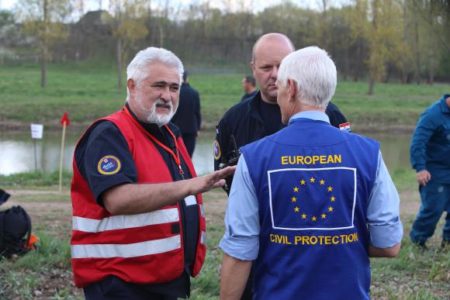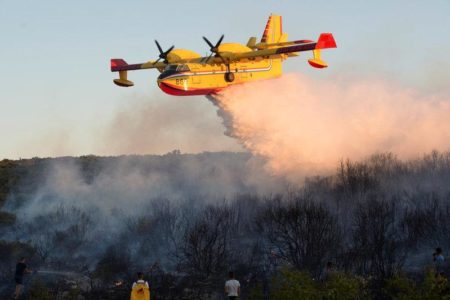Nobody knows the way it’s gonna be
European Commission reveals a new system against natural disasters

Source: European Commission
Summer is the time of the year that most people eagerly await. It is a well-deserved break for many, ranging from pupils and students to workers. Synonyms for it are good weather, vacations, travels and any other hedonistic act that comes to your mind. Unfortunately, many people did not manage to enjoy this summer. It has been increasingly warm in Europe, and it triggered a lot of problems for the continent. Although during my summer break I avoid watching television, I could not forget the disturbing scenes of wildfires coming from southern countries such as Portugal, Italy or Croatia. Everyone learned about Canadair and heard about the catastrophic consequences of such disasters. The unfortunate loss of human lives (64 people died in Portugal) and severe material damage led many to question the effectiveness of the current preparedness of Europe to react.
In the framework of the implementation of the Paris agreement (COP21) goals, which brought together such a broad coalition that even Syria joined it, French President Emmanuel Macron recognized the importance of the issue, and proposed to “Make Our Planet Great Again”. Many relevant European media outlets warned of the damages of climate change. For instance, the BBC has an interesting article on how it affects floods, while Euronews reports that the number of forest fires in the EU has more than doubled, which amounts to an area twice the size of Luxembourg. Experts are blaming climate change. Around the same time, CNN published a story that some children in Portugal have decided to raise funds to sue European countries for failing to address climate change. After all, it is future generations that will be mostly affected if something does not change.
To combat natural disasters, the European Commission has announced that it has ambitious plans to increase the ability of EU member states to respond to them. The Commission stated that it is aware of the complexity of natural disasters in recent years, and that the response will be the creation of rescEU. The Commission defines rescEU as a reserve of civil protection capabilities. It will include planes such as Canadair, water pumps, emergency medical assistance, search and rescue units, etc. It will be complementary with the existing national forces, and serve to combat tragedies such as forest fires, floods or earthquakes. The funds will come from the EU budget, and the Commission will control the operation.
Additionally, the Commission will help in assisting Member States to strengthen their current capabilities. The proposal also emphasizes the need for co-operation between the Member States to prepare the best strategies, plan preventions and to work on solving possible issues that could occur. Conclusively, it aims to reduce the time for help, as in these situations every minute is important. It will be a big upgrade from the EU’s Civil Protection Mechanism, which is based on a voluntary system and coordinated by the European Emergency Response Coordination Centre in Brussels. More good news is that rescEU would be extended to partner countries outside the EU, such as Norway, Iceland, Serbia, FYROM, Montenegro and Turkey, who all already participate in the EU Civil Protection Mechanism.
Yesterday, French President Emmanuel Macron immediately gave support to this initiative on Twitter, as he is very well aware of the damage caused to France in the first months of his presidency. Support came from the Portuguese Prime Minister Antonio Costa as well. Furthermore, European People’s Party leaders Joseph Daul and Manfred Weber expressed strong backing, emphasizing solidarity. The Socialists and Democrats leader Gianni Pitella also welcomed the initiative. While the rescEU initiative really sounds like a good way forward I believe much more can be done in combating climate change. Activists have warned many times that EU countries are using tricks to avoid the needed cuts in the emissions, which in the long run can have horrible effects on the planet. The European Union can and needs to be a frontrunner on issues that promote human rights, the quality of life and positive progressive values. Like in the many published Twitter statements, the needed hashtag is #solidarity.

Source: Reuters
